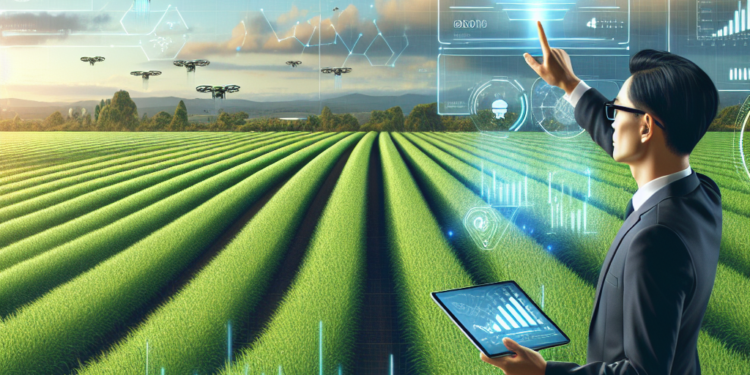Artificial intelligence (AI) is revolutionizing the way we approach agriculture. Gone are the days when farmers had to rely solely on their intuition and experience to maximize crop yields. Today, AI technologies are being used to analyze vast amounts of data and optimize every aspect of the farming process, leading to significant increases in crop yields.
One of the key ways in which AI is boosting agricultural crop yields is through the use of precision agriculture techniques. Precision agriculture involves using AI algorithms to analyze data from satellites, drones, and other sources to create detailed maps of farmland. These maps can then be used to identify areas of the field that need special attention, such as areas with poor soil quality or inadequate irrigation.
By pinpointing these problem areas, farmers can apply the right amount of fertilizer, water, and other inputs only where they are needed, rather than applying them indiscriminately across the entire field. This not only reduces costs for farmers but also helps to minimize the environmental impact of farming by reducing the amount of chemicals and water that are used.
In addition to precision agriculture, AI is also being used to optimize planting schedules and crop varieties. By analyzing historical data on weather patterns, soil conditions, and crop yields, AI algorithms can recommend the best times to plant each crop and the most suitable varieties to use for each field. This ensures that farmers are planting the right crops at the right time, maximizing their chances of a successful harvest.
AI is also being used to predict crop diseases and pests, allowing farmers to take preventive measures before they become a problem. By analyzing data on weather patterns and pest populations, AI algorithms can alert farmers to potential threats and recommend the most effective treatments to protect their crops. This proactive approach can significantly reduce crop loss due to diseases and pests, leading to higher yields overall.
Another area where AI is making a big impact on crop yields is in the field of robotics. AI-powered robots can help farmers with various tasks, such as planting, weeding, and harvesting, that are traditionally labor-intensive and time-consuming. These robots can work around the clock, in any weather conditions, and with a level of precision that is impossible for humans to achieve. This leads to faster and more efficient farming practices, resulting in higher crop yields.
AI is also being used to optimize irrigation systems, ensuring that crops receive the right amount of water at the right time. By analyzing data on soil moisture levels, weather forecasts, and crop water requirements, AI algorithms can recommend the most efficient irrigation schedules for each field. This helps to prevent both under- and over-watering, which can lead to stunted growth and reduced yields.
Overall, AI technology is revolutionizing the agricultural industry by enabling farmers to make data-driven decisions that lead to higher crop yields. By analyzing vast amounts of data and optimizing every aspect of the farming process, AI is helping farmers to grow more food, more efficiently, and with less impact on the environment. As AI technologies continue to advance, we can expect to see even further increases in crop yields and improvements in farming practices.













